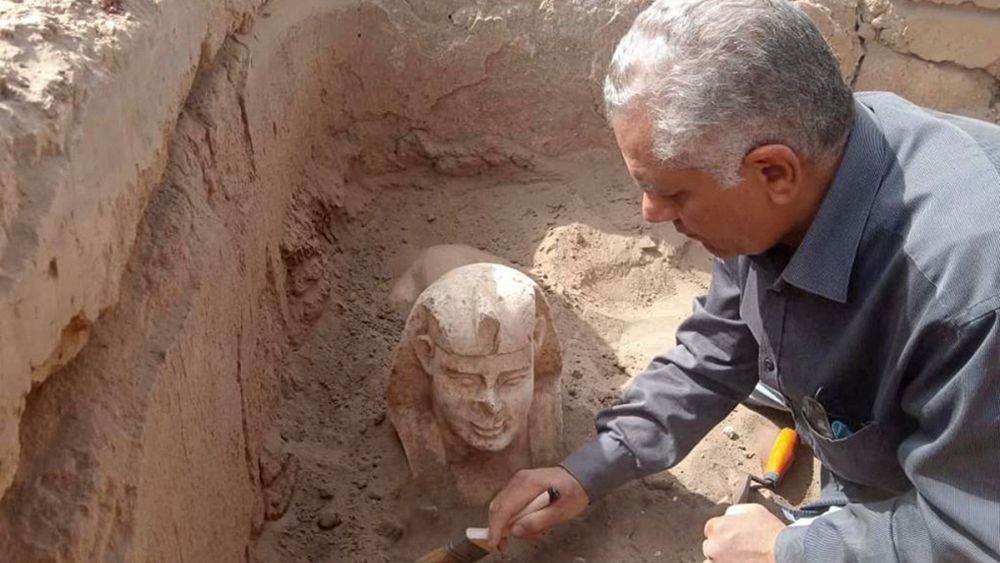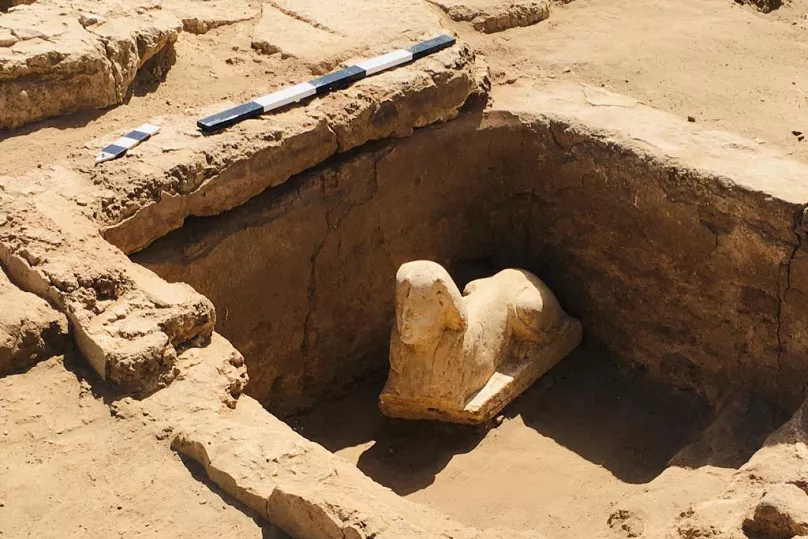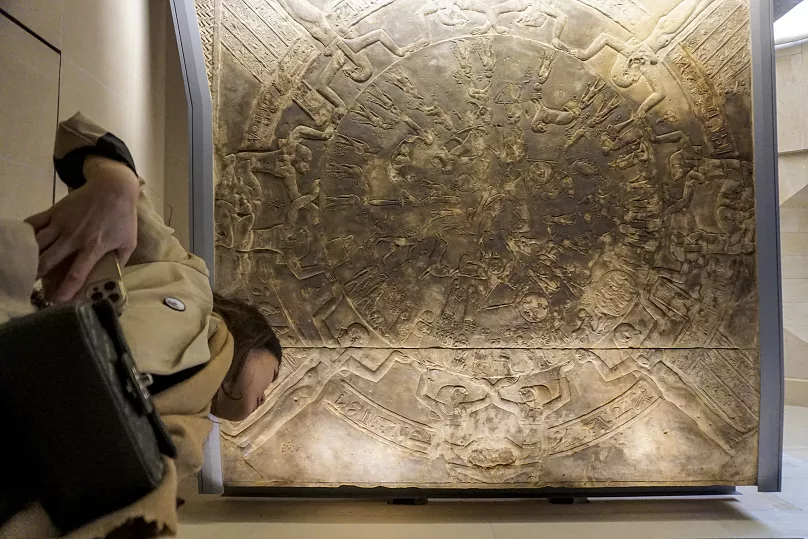
Archaeologists in Egypt have made a fascinating discovery of a limestone sphinx statue with a “smiley face and two dimples” near the Hathor Temple, a well-preserved ancient site in the country.
The find, announced by the tourism and antiquities ministry, is just the latest in a series of discoveries made in recent months.
Researchers believe that the stylised representation of an ancient Roman emperor, found inside a two-level tomb near the temple, may be Emperor Claudius, who ruled from the year 41 to 54.
Next to the beautifully crafted sphinx, the team also found a Roman stele written in demotic and hieroglyphic scripts that, once deciphered, could shed light on the identity of the ruler.

Political and economic significance of the recent discoveries in Egypt
The Hathor Temple, located about 500 kilometres south of Cairo, has a rich history and was once home to the Dendera Zodiac, a celestial map that has been on display at the Louvre in Paris since 1922.
The Egyptian government has been trying to reclaim the Zodiac, which was taken by a Frenchman named Sebastien Louis Saulnier more than a century ago.

The discovery of the “smily sphinx” is just one of many recent archaeological finds in Egypt.
In Giza, authorities recently announced the discovery of a hidden nine-metre passage inside the Great Pyramid, which could lead to the actual burial chamber of pharaoh Khufu. In Luxor, a “complete residential city from the Roman era” was found.
Adding to this is a new study, which recently shed light on the puzzling Ancient Egyptian process of mummification, revealing the recipes used to preserve the bodies of the dead for thousands of years.
Despite the scientific significance of these discoveries, some experts view the announcements as having more political and economic weight. Egypt is currently experiencing a severe economic crisis and is relying on tourism to revive its vital tourism industry.
The government hopes to attract 30 million tourists a year by 2028, a significant increase from the 13 million before the pandemic.
This year the Grand Egyptian Museum in Cairo is expected to open, which has been billed as the world’s largest museum devoted to a single civilisation. It will feature the largest collection of Tutankhamun relics ever displayed and it’s expected to attract 5 million visitors a year.
Check out the video above for a closer look at the incredible smiling sphinx discovery.
Video editor • Theo Farrant

